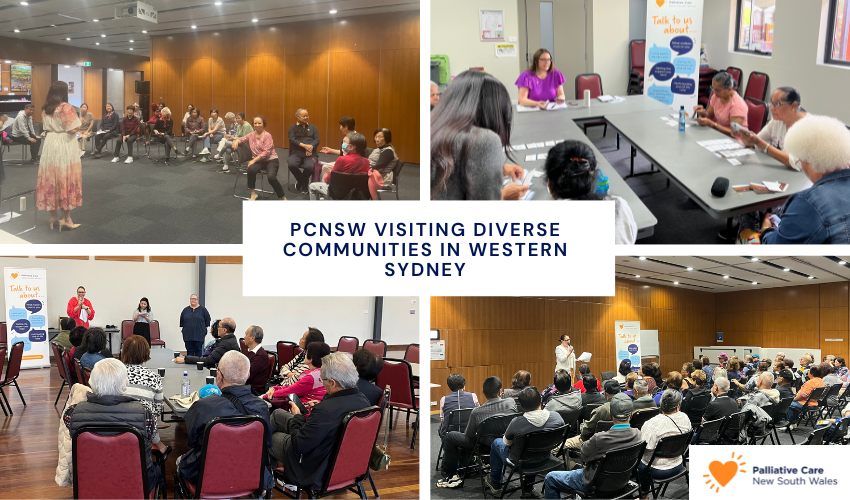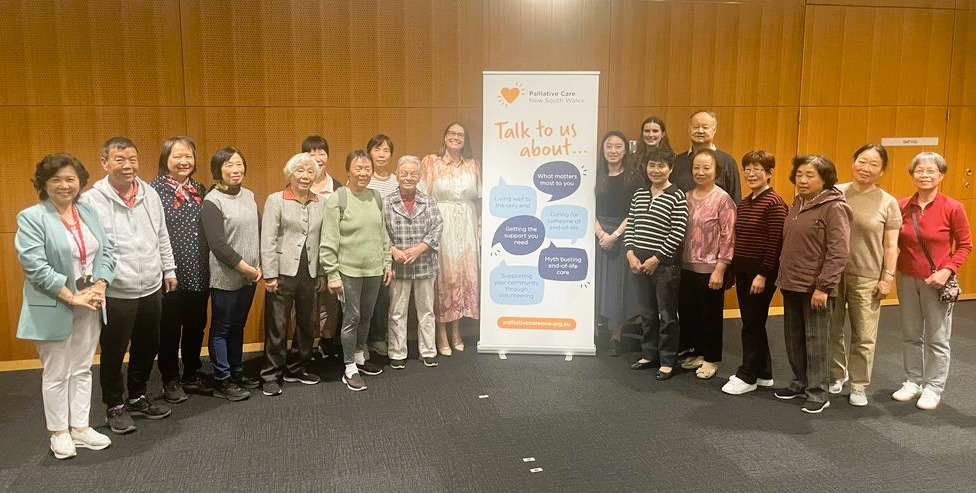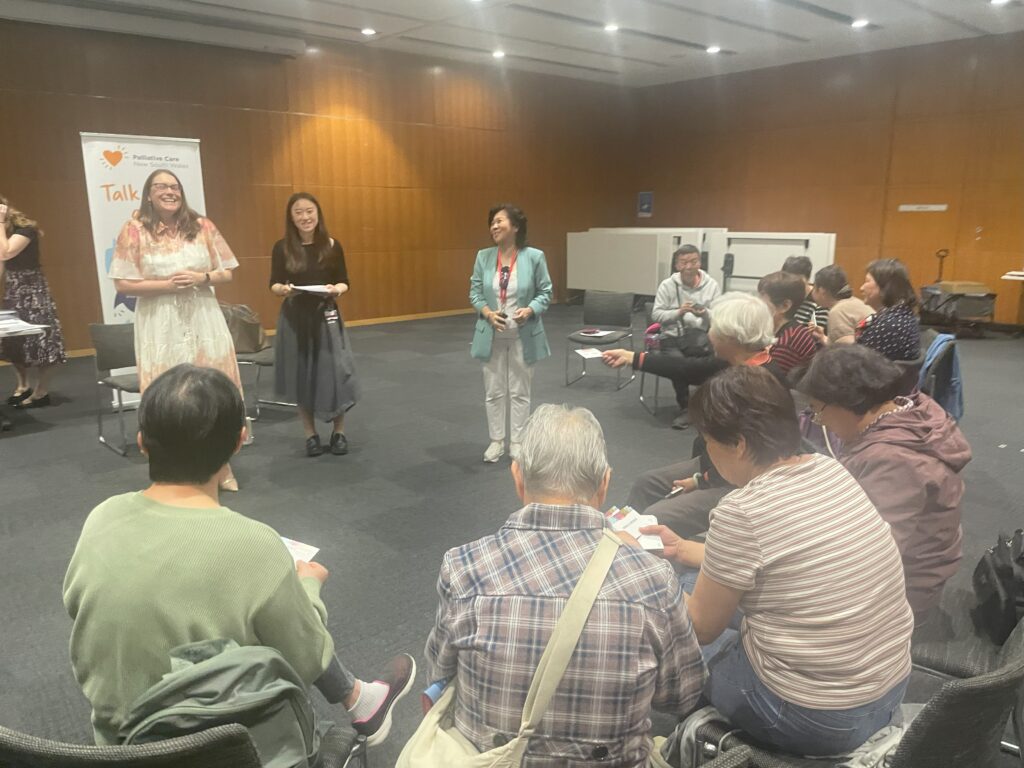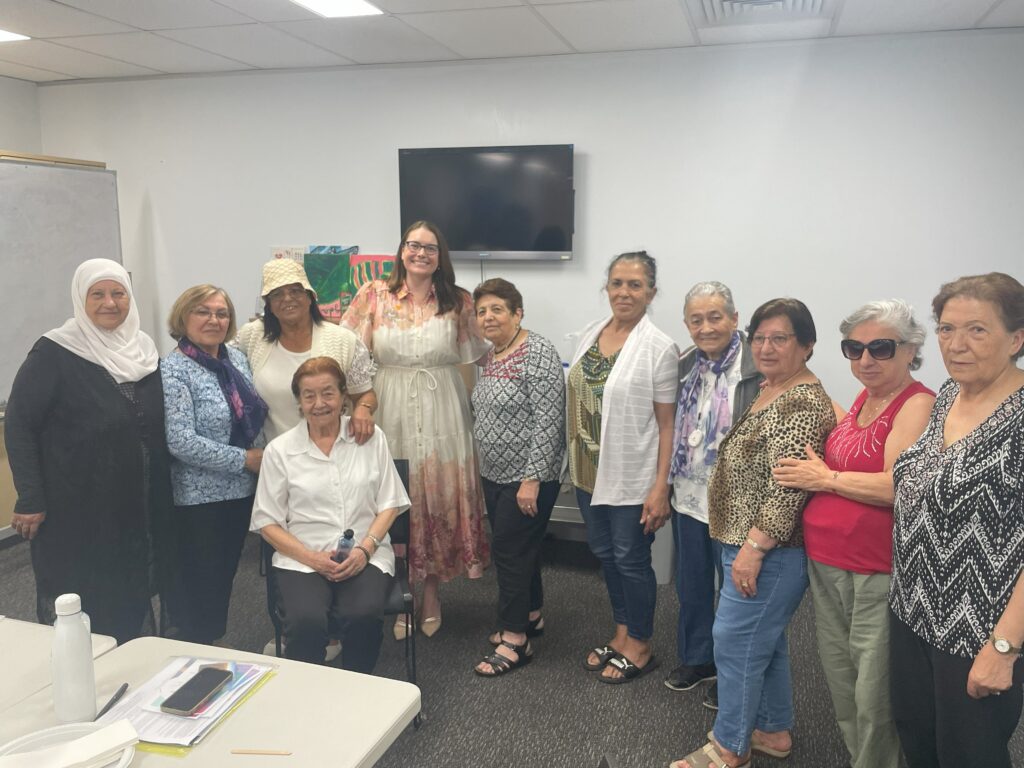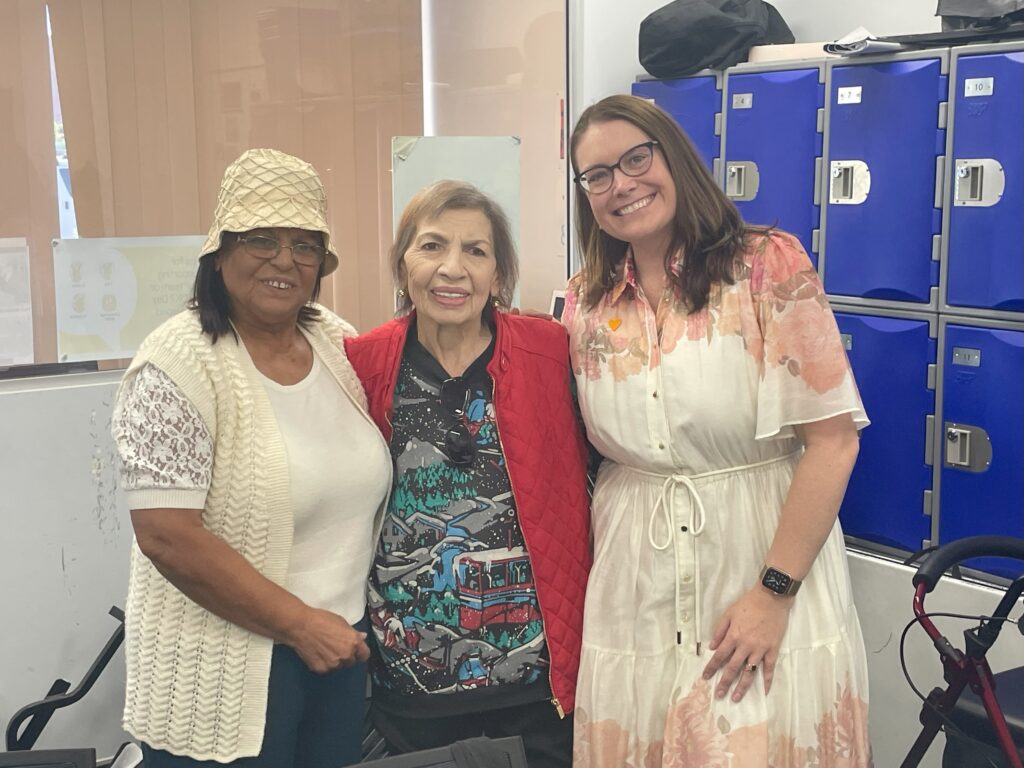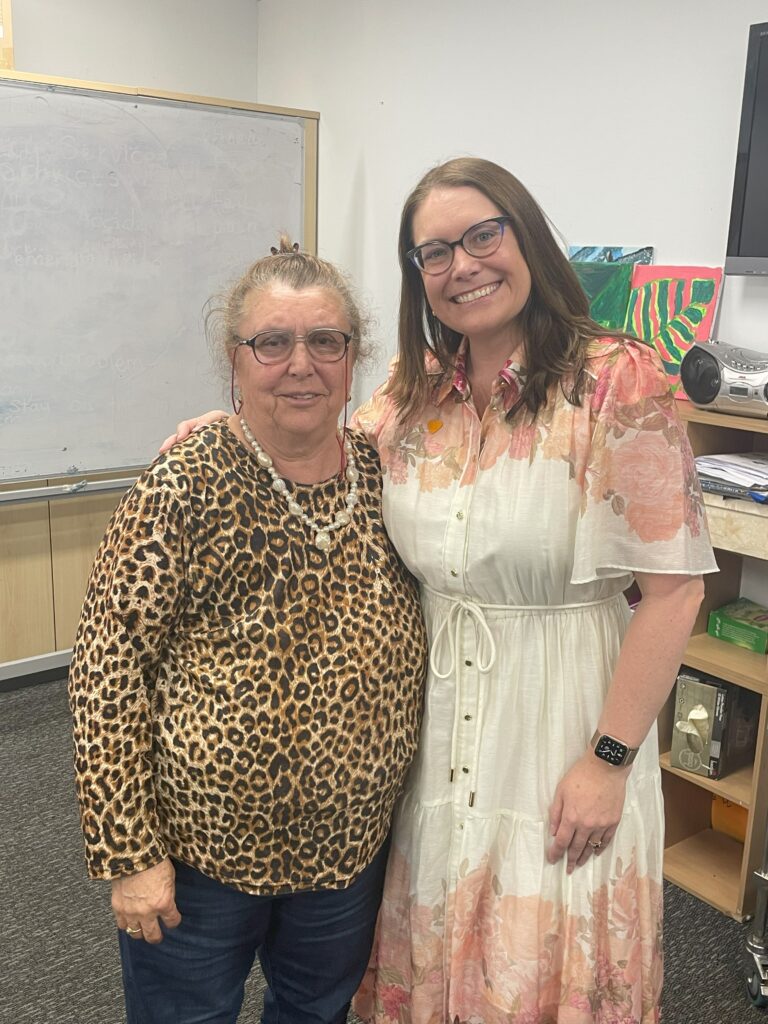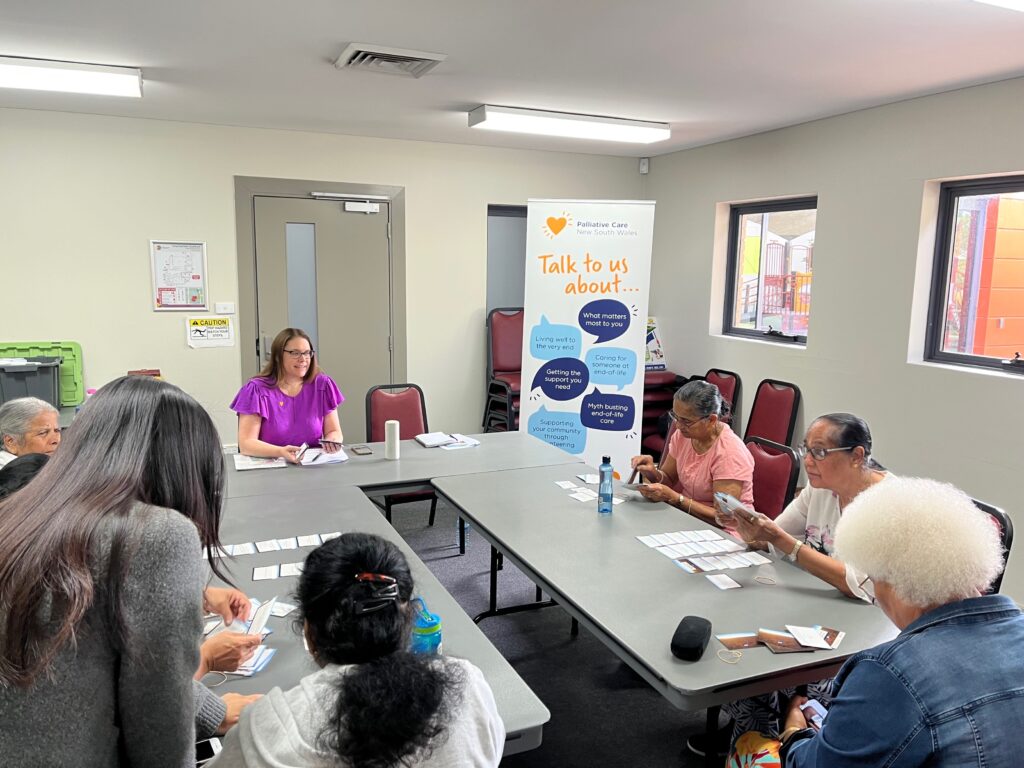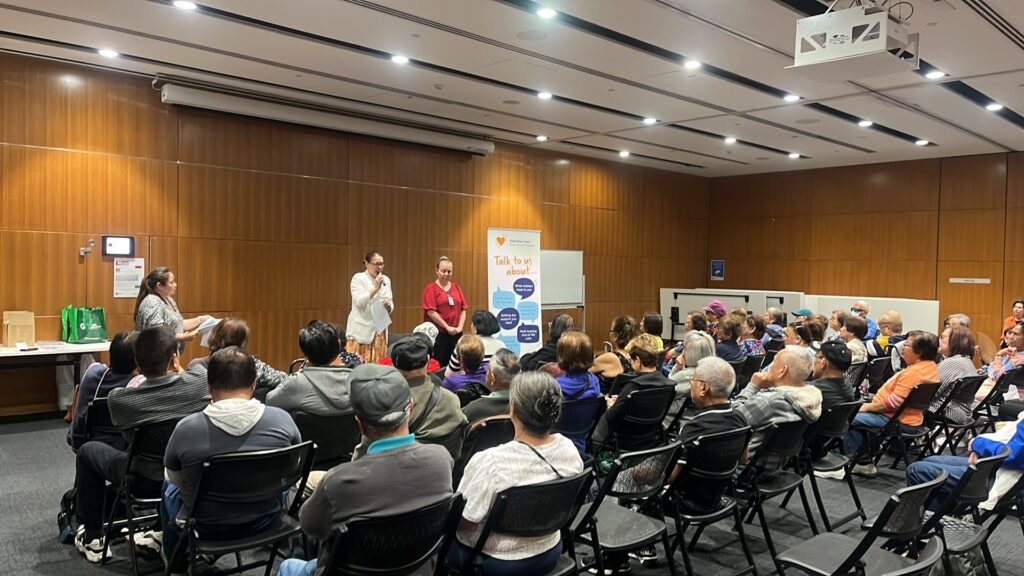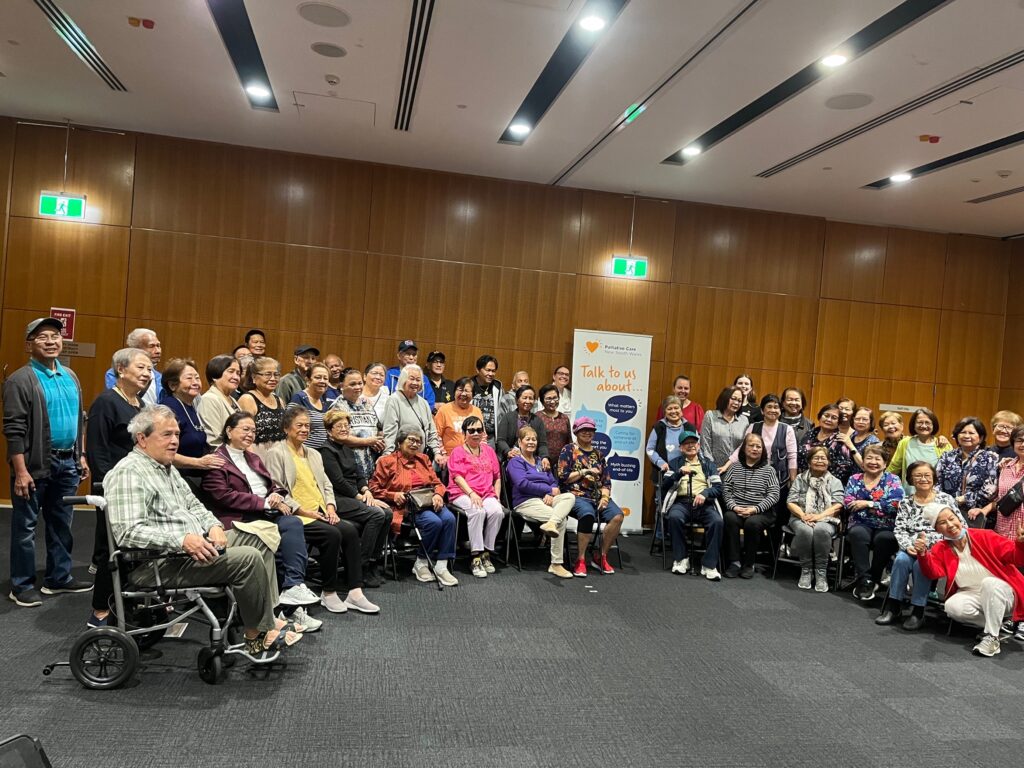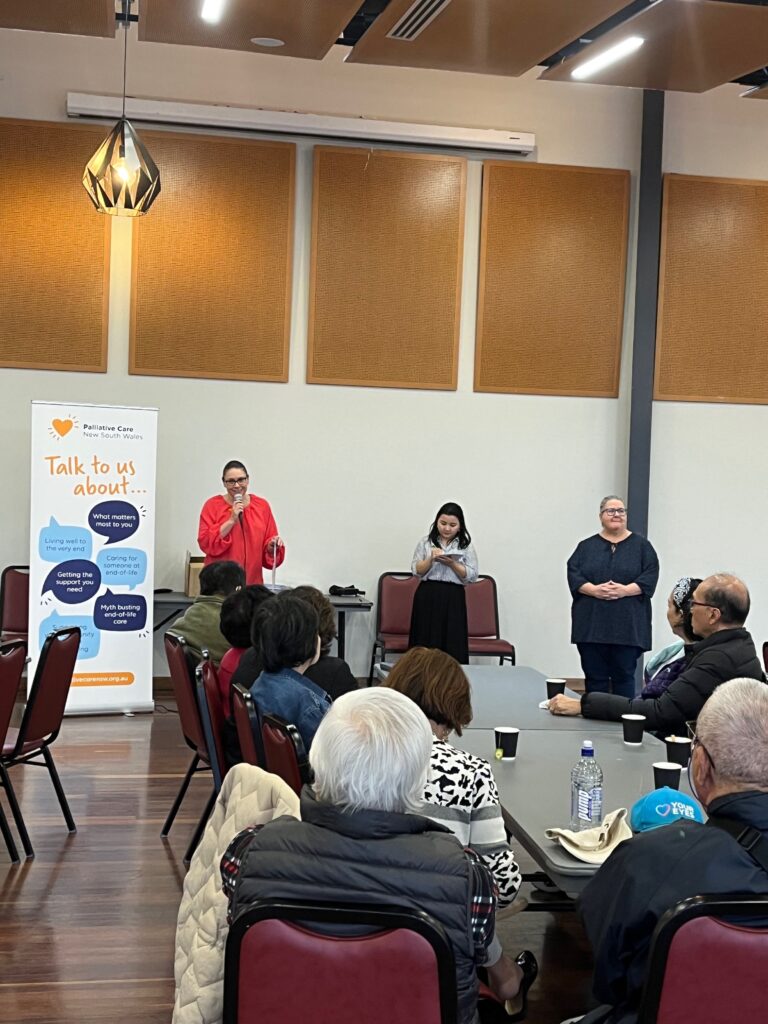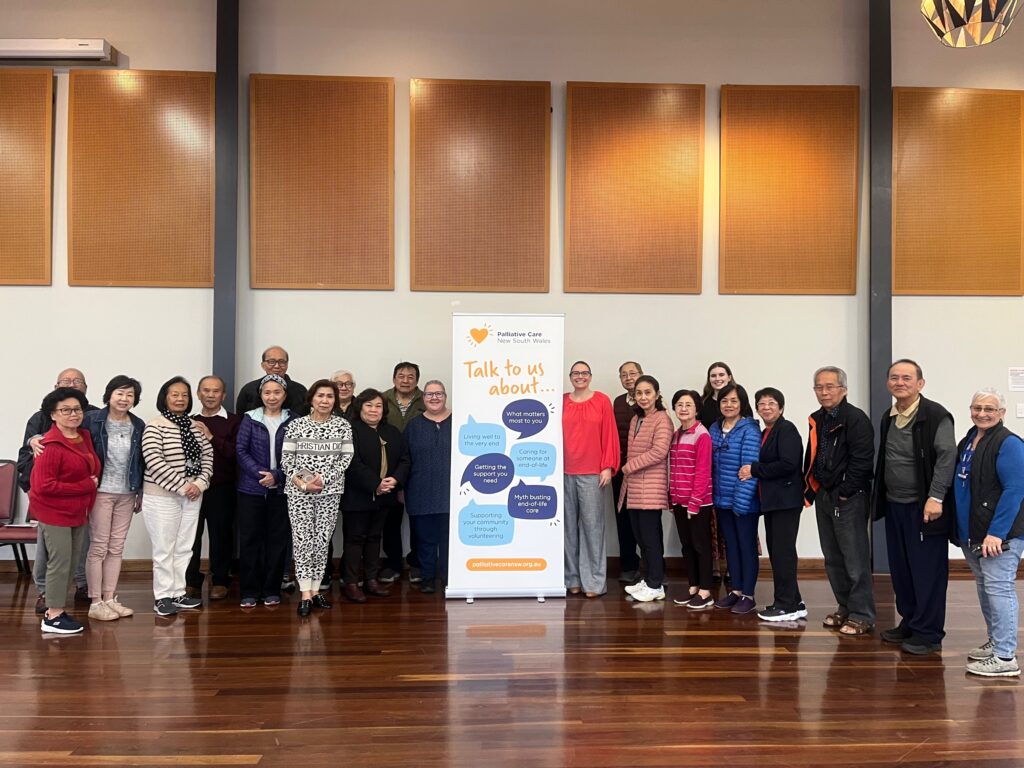This week Palliative Care NSW has been in Western Sydney to present Community Conversations to various culturally and linguistically diverse groups.
With about half (46.8 per cent) of residents in Western Sydney born overseas and 50.3 per cent of people speaking a language other than English at home – this area is recognised as the most culturally diverse LHD in NSW. Combined with the expected 59 per cent increase in people aged 70 years or over and a 54 per cent increase in people aged 85 years and over forecast from 2016-2026 – there is more need than ever to ensure community members are informed about palliative care options available to them.
All of these sessions were developed in partnership with SydWest Multicultural Services. This collaboration has been a great success, and we look forward to developing and improving how we offer these sessions to diverse audiences across NSW.
Monday 23rd September
On Monday we were saying “Nǐ hǎo” to an enthusiastic group of Mandarin speaking community members. We arrived at Blacktown Library to find the Seniors Group dancing and chatting with each other and were a little concerned about the change of pace to a conversation about palliative care. We needn’t have worried – with the assistance of an interpreter, Kirsty Blades presented information to the group about how they could access support at end-of-life. After overcoming some of the challenges of translating “Palliative Care” into Mandarin, and removing some of the stigma surrounding the term, we were able to make some real progress in how this group understood what palliative care is – and importantly what it isn’t! Kirsty touched on the importance of Advance Care Planning, and how palliative care can be provided in a culturally appropriate way that includes the family as decision makers and respects traditions and beliefs.
The group were happy to discuss what was important to them using discussion starter cards that were translated into Chinese. It was a great success, and we have been invited to attend other Seniors groups in the area.
Mandarin Speaking Community Group – Max Webber Library, Blacktown
A quick dash across Blacktown and we were saying “Merhaba” to a friendly and conversational group of Turkish speaking women. This session relied heavily on translations by some of the attendees as there was a range of English proficiency throughout this group. It was a loud and chatty session around the table, with some people discussing palliative care in Turkish to each other and some in English. This group of women were keen to understand the role of their families in decision making and how their faith would be incorporated into their care plans. While there were a few misunderstandings at times due to the language differences, patience and laughter meant that a topic that is rarely discussed openly in Turkish culture was able to be talked about in a safe and supportive space. All of the participants were happy to have some more information about accessing care when the time comes. The group repeatedly acknowledged “you just never know what’s going to happen” and appreciated being given resources about the value of planning, that they could take home and share with family.
Turkish Speaking Community Group – SydWest Multicultural Services, Blacktown
Tuesday 24th September
On Tuesday we were saying “Bula” and “Kaise” to a lovely group of Fijian/Hindi speaking women. This community group had many great questions about palliative care and how they could access services in Western Sydney Local Health District. Using the discussion starter cards, the women were encouraged to think about what matters most to them at end-of-life, and Kirsty described some ways they could discuss these topics with their families and friends. Some of the things that mattered most to the group included quality of life, being cared for in their place of choice, and ensuring their family and friends were supported. The women were also interested in Advance Care Planning, legal wills and funeral arrangements. One member from the group shared their past experiences with palliative care and explained that they saw the difference it made for their loved one. The women also acknowledged that they do not know when they may need palliative care in the future, but that having this knowledge ahead of time is important.
Fijian/Hindi Speaking Community Group – Glenwood Community Hub, Glenwood
Wednesday 25th September
On Wednesday we were saying “Kumusta” to a fantastic turnout of around 50 people from the Filipino Seniors Community Group. We were very lucky to be joined by Michelle Scoble, a Clinical Nurse Specialist 2 delivering End of Life Care from Western Sydney Local Health District. It was a wonderful opportunity for the community group to connect with a palliative care clinician from their local area, and they had many great questions for Michelle. Richie Ang from SydWest Multicultural Services was also able to interpret as needed throughout the session, which was crucial to ensure that all information was being communicated effectively to the group. Kirsty and Michelle worked to bust some myths about palliative care, and it was great to see the community members asking questions to ease their concerns. Kirsty and Michelle also emphasised the importance of Advance Care Planning, and working out what would matter most to them and their families at end-of-life. The group members enjoyed using the discussion starter cards to highlight some things that are important to them, including having a legal will that says who they want to leave their things to, as well as not receiving intensive medical intervention. Michelle stressed the importance of communicating these wishes to their families while they are still well, as well as doing their own legacy work so their loved ones can learn more about their stories.
Filipino Speaking Community Group – Max Webber Library, Blacktown
Thursday 26th September
At our final session on Thursday we were saying “Selamat pagi” to the members of the Indonesian Seniors Community Group. Despite the rainy weather, 18 members from this community group were able to attend and learn about palliative care and how it can support them. We were very grateful to have the support of Cathy McDonnell during the session, a Clinical Nurse Consultant delivering Supportive and Palliative Care in Blacktown Hospital. Jess Boenawan from SydWest Multicultural Services also helped interpret the information to the group. It was fantastic to have the support of Cathy and Jess during the session, and it was great for the community members to learn about palliative care from a local clinician. Kirsty and Cathy shed light on how to access palliative care services and explained the types of support they could receive. While very few group members had experiences with palliative care, they were interested to learn about the focus on quality of life and comfort that these services could provide patients and their families. Cathy also emphasised the importance of connecting with palliative care services early in the illness trajectory so they can explore what may or may not be achievable. The group members laughed while discussing what matters most to them, sharing jokes about setting off on big holidays. One member shared that they would like to talk about their fears and worries, and using the discussion cards would be a great way to discuss these important things with family.
Indonesian Speaking Community Group – Glenwood Community Hub, Glenwood
Palliative Care NSW would like to thank SydWest Multicultural Services for connecting us with these wonderful community groups, as well as the staff from Western Sydney LHD who made time to come and support their community during these sessions. It was a great opportunity to reach five different culturally and linguistically diverse community groups and share vital information about the palliative care services that are available to support them and their communities.
These Community Conversations were made possible with support from NSW Ministry of Health.
How you can get involved…
PCNSW host a professional network for health professionals involved in palliative care to come together once a quarter to engage in peer-to-peer discussions and consultation regarding culturally appropriate palliative care.
If you would like to be involved, join our CALD Communities & Palliative Care Professional Network here.
Reference:


